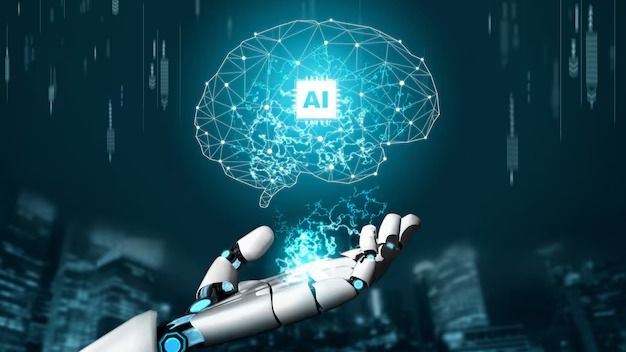Model collapse: Concerns are mounting in the artificial intelligence (AI) community about a potential “model collapse” — a scenario in which AI systems could become less effective due to an over-reliance on AI-generated data. This concept, while debated in 2023, has gained traction as experts worry about the future of generative AI, especially as it increasingly dominates the digital landscape.
Understanding the collapse of the model
Model collapse refers to the idea that future AI systems could degrade in performance if they are trained primarily on AI-generated content rather than high-quality human-generated data. Modern AI models rely heavily on large amounts of data to learn and improve. Traditionally, this data has been sourced from the internet, where human-created content has been abundant. However, with the advent of accessible generative AI tools, more online content is now being created by AI itself.
This shift poses a significant risk: as AI systems begin to learn from AI-generated content, which may lack the diversity and quality of human-generated data, the systems could begin to “dumb down.” This self-referential training could lead to a reduction in the effectiveness of AI models, akin to digital inbreeding.
The challenge of filtering AI data
One solution could be to filter AI-generated content during the data collection process, but this is easier said than done. Tech companies like OpenAI, Google, and Meta already devote considerable resources to filtering and cleaning the data they use to train AI models. As the volume of AI-generated content increases, the task of filtering it will become increasingly difficult and expensive. Furthermore, as AI-generated content becomes more sophisticated, distinguishing it from human-created content will become nearly impossible.
Is a catastrophe likely?
Despite these concerns, some experts believe fears of a catastrophic model collapse may be overblown. Most research into model collapse assumes a complete replacement of human data with AI data, but in reality human- and AI-generated content is likely to co-exist, reducing the risk of collapse.
Moreover, the future of AI may involve a diverse ecosystem of AI platforms, each contributing differently to the digital landscape, rather than a single dominant model. This diversity could provide a buffer against a potential collapse.
The broader impact of AI content
Beyond the technical risks, the proliferation of AI-generated content also raises concerns about its impact on digital culture. The rise of synthetic content could dilute the richness of human interaction online, as seen in the decline in activity on platforms like StackOverflow following the launch of tools like ChatGPT. Moreover, the increasing homogeneity of AI-generated content risks erasing cultural diversity.
(with PTI inputs)
Disclaimer:
The information contained in this post is for general information purposes only. We make no representations or warranties of any kind, express or implied, about the completeness, accuracy, reliability, suitability or availability with respect to the website or the information, products, services, or related graphics contained on the post for any purpose.
We respect the intellectual property rights of content creators. If you are the owner of any material featured on our website and have concerns about its use, please contact us. We are committed to addressing any copyright issues promptly and will remove any material within 2 days of receiving a request from the rightful owner.

